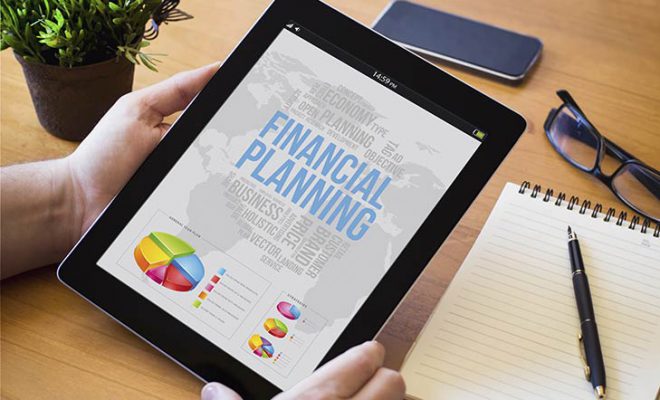Risk Tolerance Lessons from Covid-19
The pandemic of Covid-19 was a wake-up call for all countries. The virus did not only endanger millions of lives across the world but also brought everything to a standstill. It affected the global economy, and brought it to a halt where recession seemed unavoidable. But valuable lessons were learnt from this pandemic. This may help you adopt a precise approach to assess risk and manage your investment framework.
There were many financial lessons to absorb from the pandemic. Here are a few risk-management tips that the coronavirus crisis may have taught us so far.
Table of Contents
Always have an additional source of income
Covid-19 created a fear of unemployment among people. According to a report by the Labor Department, by the end of July 4th, 2020, 31.8 million people were claiming unemployment insurance. Losing your only source of income can be problematic as you have a list of necessary expenditures that you cannot overlook. These can include monthly expenses like mortgage or rent, utilities, insurance premiums, car loan, dining out or travel expenses, etc. While unemployment insurance is one way to go, you might have to ultimately use your savings to manage most costs. However, savings come with a limit and are rarely enough to help you navigate for a long time. Such times can be utilized to re-evaluate your financial plan. To start with, having more than one source of income ensures better financial stability. There are many ways to create secure streams of income.
Here are a few ideas that might help you:
You can look for an area that you are passionate about and can take up freelance work. You can also start a blog. If you have extra cash in hand and are looking to earn money through investment, you can talk to a financial advisor to find out the best ways to grow the value of your money. You could invest in stocks, mutual funds, bonds, or other schemes. Make sure to also diversify your investments to handle market volatility. Investing in real estate can give you good returns too. Renting out a bigger property and moving to a smaller one can help you earn extra money. Or you could sell your property at a better price when the market recovers.
Re-evaluate your risk acceptance
Risk tolerance is the level of risk an investor is ready to take. Higher risk tolerance can sometimes signify a greater reward. But not every investor can afford a bigger risk appetite. However, the truth of the matter is that every investment carries some degree of risk. The recent market downturn did not just play with people’s anxieties but also educated them about how and where to invest. Learning from these trends, you can fix a suitable risk quotient for yourself. Once you have an idea about your risk spectrum, the next step would be to learn about the performance of your portfolio. Experienced investors consider both risk and return. If you are an aggressive investor, you might be comfortable with the current market fluctuation and may not need changes in your investment portfolio. If you have a financial goal with a long-term horizon, you can invest in higher-risk assets such as stocks. On the other hand, if you are an investor with a low-risk tolerance, you can limit yourself to low volatility assets such as safe bonds, certificate of deposits, etc.
Start an emergency fund
For many people, the concept of savings has never been as important as it has become now. In recent times when many people lost their jobs, an emergency fund could keep you out of financial trouble until you land back on your feet again. Luxury items like buying a car or jewellery may seem out of the question right now, but basic items like food, rent, water bills, education costs, etc. are still important and essential to cover. More than assets like property or stocks, liquid money plays a crucial role in a crisis such as the pandemic. Hence, it can be beneficial to get into the habit of saving for an emergency fund. A rule of thumb followed and recommended by most experts is to have enough money that is equivalent to at least six or eight months of your normal living expenses. This amount will allow you to live peacefully for months without any disruption or stress.
Buy a healthcare plan other than an employer-provided plan
Covid-19 drastically changed the lives of people across the globe. Slowly but surely, the world started prioritizing health. People are maintaining proper hygiene but also increasing their immunity by eating healthy. Another important precautionary step may be to buy a comprehensive health insurance policy. The pandemic affected the economy worldwide, which forced many employers to layoff their staff. In such case, employees had to let go of their employer-provided health plans. Even if you are fortunate to have a steady income with health insurance from your employer, it might not be adequate to cover critical illnesses that may be caused by coronavirus. You may be forced to use your savings or resort to debt in the form of loans. However, ensuring that you have a comprehensive health plan for yourself and your family can help you cover the expenses arising out of a critical illness.
Invest for the long-term
Any investment, whether high-risk or low-risk, can earn better results if invested for a longer period. Investing is a focused activity where small factors together play a major role, such as time, compounding, diversification, etc. So, if you are investing for retirement or for a child’s higher education expenses, long-term investments in an individual retirement account (IRA) or a 529 plan can be fruitful in bringing you a good return. But, the important thing for any investor is to have clear goals in mind and to find the right balance. If you are interested in immediate returns along with future stability, you can opt for a diversified portfolio, split equally into long-term and short-term investments.
To sum it up
Every investor is different, and a financial decision that works for one might not work for another. The best way is to move forward rationally and resolve every problem systematically. It also helps to reach out to seek professional advice on investment decisions to ensure that you are on the path to growth.
You can consult financial advisors for a competent financial plan.
















